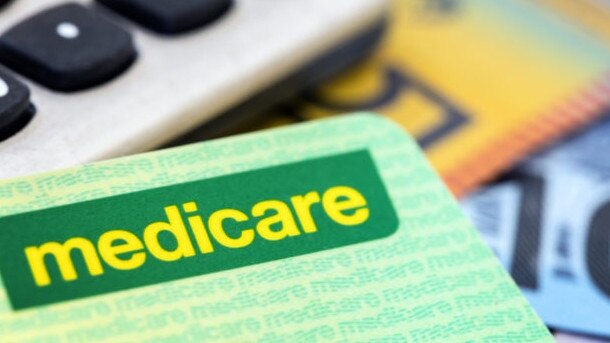1.2 million Australians to pay reduced Medicare levy
Health economists have welcomed the move to increase Medicare levy thresholds that will save low-income earners additional tax.

Health economists have welcomed the federal government’s move to increase Medicare levy thresholds that will save low-income earners additional tax, describing the measure as appropriately targeted support that will ease the cost of living.
Anthony Albanese’s alterations to the stage 3 tax cut package will also lift Medicare levy thresholds, meaning that more Australians will in future be exempt from paying the Medicare levy at all, while others will pay less.
Currently, the Medicare levy threshold for single people is set at $24,276. That will rise under the new tax package to $26,000, meaning anyone who earns less than that will not pay a levy.
The Medicare levy currently rises gradually to reach two per cent by the time an individual earns over $30,345; under the revised tax package the two per cent health tax will not kick in until earnings reach $32,500. Families will not be subject to the two per cent levy until their combined income reaches $54,807, up from the current threshold of $51,361.
The government has calculated changes will deliver an extra $172.40 a year into the pocket of individuals, and an extra $344.10 per year for families. That will be on top of the stage 3 tax cuts that provide a cut of $804 to most taxpayers.
The figures have been reached by raising the thresholds by 7.1 per cent in line with inflation.
Treasury estimates 1.2 million Australians will either remain exempt from the Medicare levy or pay less in tax as a result of the changes.
“What the government has announced is a reduction in the number of people who have to actually pay the Medicare levy, consistent with the idea that they’re the ones that are facing cost of living pressures most acutely,” said health economist Stephen Duckett. “And so it’s just another way of reducing the tax burden for very low income people consistent with the other aspects of the tax changes.”
The Medicare levy was introduced at the inception of the national health insurance scheme 40 years ago as a revenue raising measure to fund the gap between the old system, under which many individuals funded their own health care, and the new system of taxpayer-funded universal health care.
The levy is compulsory for those above the thresholds and applies at the rate of two per cent for most taxpayers. It does not actually fund the health system directly but is effectively another form of income tax.
Professor Duckett said the tax measure announced by the Albanese government would have no impact whatsoever on the overall funding of the health system.
“It was never designed to fund the total health system,” Professor Duckett said. “It was just a revenue raising measure to pay for the introduction of Medicare, and there’s no relationship between the amount of revenue from the Medicare levy and what is spent on the health system.”






To join the conversation, please log in. Don't have an account? Register
Join the conversation, you are commenting as Logout